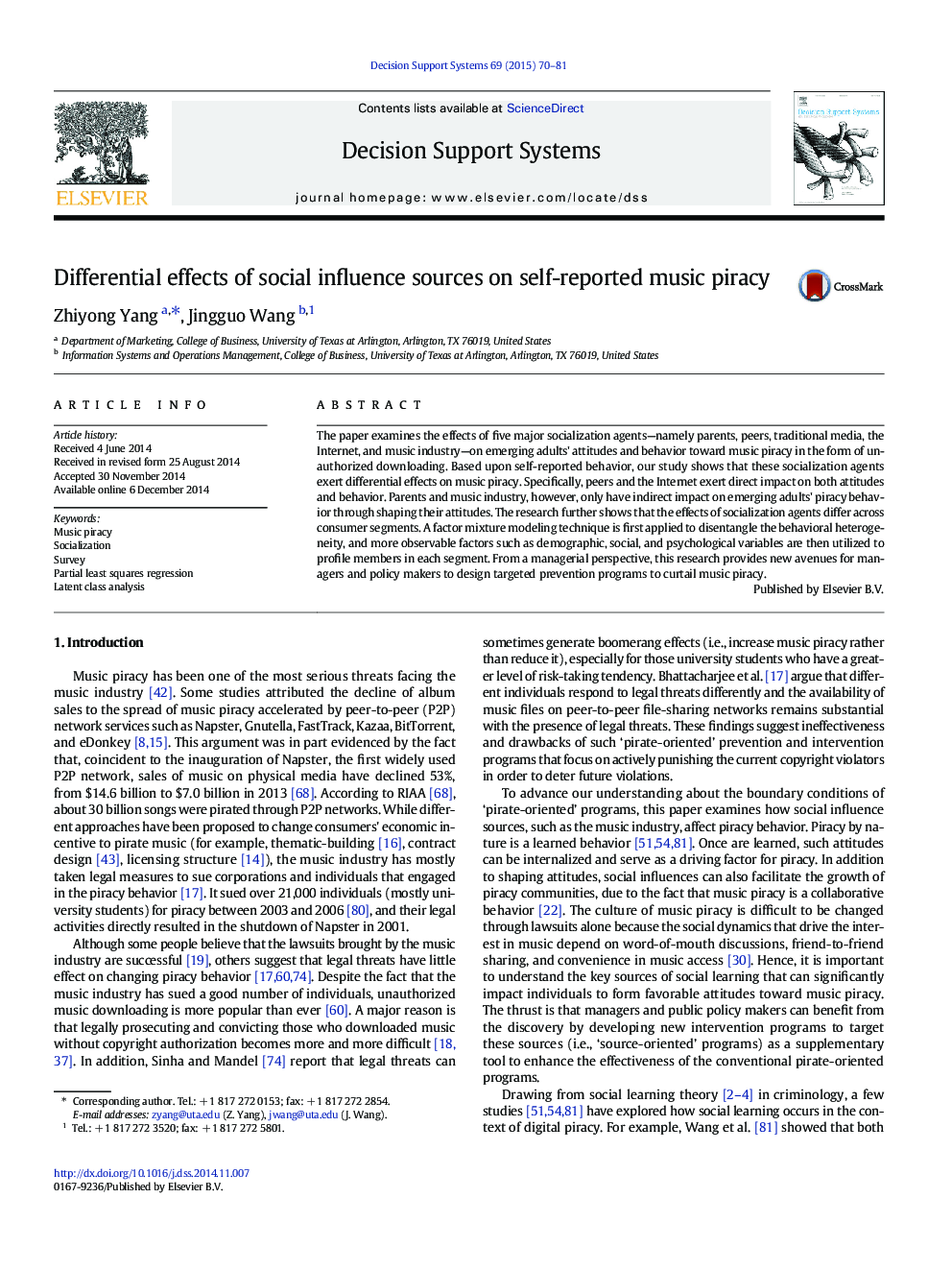| Article ID | Journal | Published Year | Pages | File Type |
|---|---|---|---|---|
| 553099 | Decision Support Systems | 2015 | 12 Pages |
The purpose of this project is to explain why a particular socialization agent's socialization (e.g., music industry's deterrence movements) is effective for some people, but not for others. The key findings are:•Peers and the Internet exert direct impact on emerging adults' piracy attitudes and behavior.•Parents and music industry, however, only have indirect impact on emerging adults' piracy behavior through shaping their attitudes.•At the presence of other socialization agents, mass media does not affect emerging adults' piracy attitudes or behavior.•The respondents can be classified into distinct segments according to their responsiveness to those socialization agents.•Demographic, social, and psychological variables are utilized to profile members in each segment.
The paper examines the effects of five major socialization agents—namely parents, peers, traditional media, the Internet, and music industry—on emerging adults' attitudes and behavior toward music piracy in the form of unauthorized downloading. Based upon self-reported behavior, our study shows that these socialization agents exert differential effects on music piracy. Specifically, peers and the Internet exert direct impact on both attitudes and behavior. Parents and music industry, however, only have indirect impact on emerging adults' piracy behavior through shaping their attitudes. The research further shows that the effects of socialization agents differ across consumer segments. A factor mixture modeling technique is first applied to disentangle the behavioral heterogeneity, and more observable factors such as demographic, social, and psychological variables are then utilized to profile members in each segment. From a managerial perspective, this research provides new avenues for managers and policy makers to design targeted prevention programs to curtail music piracy.
